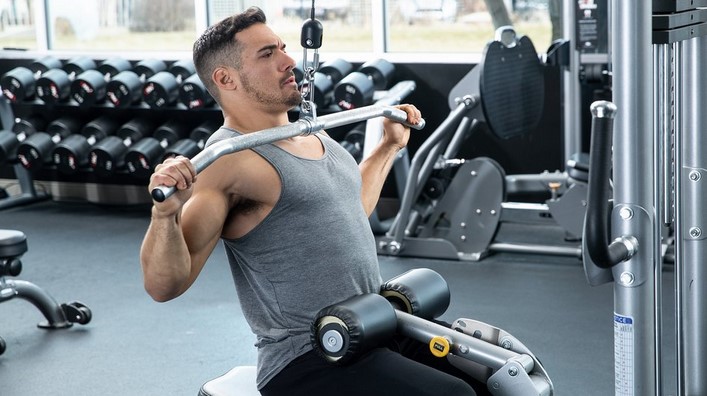
Weightlifting can be a highly effective way to build strength, increase muscle mass, and improve overall fitness. However, for beginners, it is essential to approach weightlifting with caution to avoid injury and maximize the benefits. How to start weightlifting safely involves understanding proper form, gradually progressing, and focusing on building a solid foundation. Whether your goal is to tone your muscles, get stronger, or improve endurance, ensuring a safe and effective start will help you reach your fitness objectives while reducing the risk of harm. This article provides essential tips for beginners looking to safely incorporate weightlifting into their fitness routine.
Weightlifting offers numerous benefits, from boosting metabolism to improving bone density. However, if not performed correctly, lifting weights can lead to strain, sprains, and long-term injuries. By following safe practices from the beginning, beginners can set themselves up for success and create a sustainable weightlifting routine that supports their goals. This guide will walk you through essential safety tips and techniques to ensure your weightlifting journey is both effective and injury-free.
1. Understanding the Basics of Weightlifting
Before diving into weightlifting, it’s crucial to have a solid understanding of the basics. Proper technique, appropriate exercises, and knowing how to structure your workouts are key to lifting safely.
1.1 Start with Bodyweight Exercises
For beginners, bodyweight exercises are an excellent starting point. These exercises help build a foundation of strength, balance, and coordination, which are essential for weightlifting. Bodyweight exercises like squats, push-ups, lunges, and planks activate the same muscle groups used in weightlifting but without the added resistance of weights. As you become more comfortable with your form and range of motion, you can start incorporating weights gradually.
Bodyweight exercises also allow you to focus on perfecting your form before moving to heavier loads. This is important because poor technique with weights can lead to significant injury risks. Additionally, focusing on bodyweight exercises first helps you build functional strength that will translate well into weightlifting.
1.2 Focus on Learning Proper Form
When lifting weights, form is everything. Bad form not only reduces the effectiveness of the exercise but also increases the risk of injury. Proper posture, joint alignment, and movement patterns are essential for safe and efficient lifting. Poor form can lead to muscle imbalances, overuse injuries, and joint strain.
Here are a few tips to maintain proper form:
- Keep your back straight: When lifting, particularly during squats, deadlifts, and overhead presses, always ensure your back is neutral. Avoid rounding your back, as this places unnecessary strain on your spine.
- Engage your core: A strong core helps stabilize your body during lifting, reducing the risk of injury. Practice engaging your core by pulling your belly button toward your spine before each lift.
- Use controlled movements: Avoid jerky or rapid movements during your lifts. Always lift with control, focusing on both the upward and downward portions of the exercise.
- Don’t lock your joints: Avoid fully locking your knees or elbows during lifts. This can put unnecessary stress on your joints and increase the risk of injury.
1.3 Start Light and Gradually Progress
When you begin weightlifting, it’s important to start with light weights to avoid overexerting yourself and to ensure you’re using proper form. Gradually increasing the weight as your body adapts will help you safely build strength without risking injury. Many beginners make the mistake of trying to lift heavy too soon, which can lead to strain and poor technique.
A good rule of thumb is to start with a weight that allows you to perform 12-15 repetitions with perfect form. If you’re able to complete more than 15 reps without struggling, it’s time to increase the weight slightly. Aim to gradually add weight in small increments over time to ensure steady progress.
2. Structuring Your Weightlifting Routine
An essential part of weightlifting is knowing how to structure your workouts. Whether you are lifting for strength, muscle mass, or endurance, having a well-balanced routine ensures that you target all of your muscle groups effectively and safely.
2.1 Full Body vs. Split Routine
Beginners should start with a full-body workout routine, focusing on compound exercises that target multiple muscle groups. Full-body workouts help ensure that no muscles are neglected, and they allow for more frequent training sessions throughout the week, as you won’t be overworking any single muscle group.
A typical beginner full-body workout might include exercises like:
- Squats or leg presses (legs)
- Deadlifts (back and hamstrings)
- Bench presses or push-ups (chest)
- Rows (back)
- Shoulder presses (shoulders)
- Bicep curls and tricep dips (arms)
As you advance, you can consider splitting your workout into specific days for different muscle groups, such as legs one day, back and biceps another, and chest and triceps on another day. This split routine allows for more focused training and better recovery between workouts.
2.2 Rest and Recovery
Recovery is a critical element in any weightlifting program. Muscles need time to repair and grow stronger after being stressed during a workout. As a beginner, aim to rest at least one day between weightlifting sessions for each muscle group to avoid overtraining and injury.
Additionally, ensure you get adequate sleep, as this is when most muscle recovery and growth occur. Staying hydrated and fueling your body with proper nutrition is equally important for recovery, so make sure you’re consuming enough protein, healthy fats, and carbohydrates to support your training.
2.3 Warm-Up and Cool-Down
Proper warm-ups and cool-downs are often overlooked by beginners but are crucial to prevent injury. A dynamic warm-up that includes light cardio, mobility exercises, and activation drills prepares your muscles and joints for the workout ahead. A cool-down consisting of gentle stretching or foam rolling helps relax your muscles and improve flexibility after a session.
3. Safety Tips for Beginners
When starting weightlifting, safety should always be a top priority. Following proper techniques, resting adequately, and using safety equipment can ensure a smooth and injury-free journey.
3.1 Use Spotters and Safety Equipment
For certain exercises, such as the bench press or squat, it’s essential to use a spotter or safety equipment like a squat rack with safety bars. This ensures that if you are lifting a weight that is too heavy or you fail to complete a rep, you are less likely to injure yourself. Never attempt lifts without the necessary safety precautions.
3.2 Avoid Rushing Your Progress
As tempting as it may be to increase the weight quickly, it’s important to avoid rushing your progress. Focus on mastering the basics first—proper form and technique—before increasing weight. If you feel pain or discomfort while lifting, stop immediately, as it could signal an injury.
3.3 Listen to Your Body
Finally, always listen to your body. If you feel overly fatigued, sore, or notice any pain during your workouts, take a break. Pushing through pain can lead to injury, which will set back your progress. Proper rest and recovery are as important as the workouts themselves.
In conclusion, how to start weightlifting safely involves understanding the importance of proper form, starting with lighter weights, and gradually progressing as your body adapts. Ensuring that your routine is well-structured with adequate rest and recovery, along with using proper safety equipment, will help you achieve your fitness goals without risking injury. As you gain more experience, you can refine your techniques and adjust your routine, but always remember that safety is the cornerstone of effective weightlifting. Starting safely will help you build strength, muscle, and confidence for years to come.


